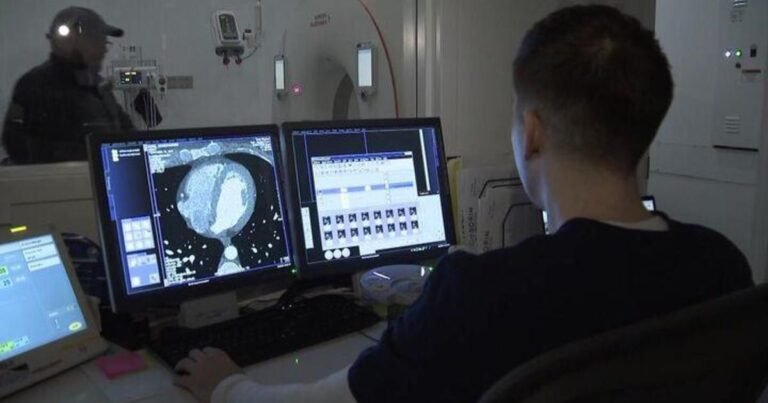new york — it is American Heart Month And many are raising awareness about heart disease, the leading cause of death in this country.
Advances in technology are making it easier to detect heart disease before it causes a heart attack.
Norma McFadden of the Bronx is a heart disease survivor.
“I’m happy to be alive,” she said.
read more: Dr. Kumar on Call: Understanding Atrial Fibrillation (a-fib) and How to Prevent It
A U.S. Postal Service employee in her 50s, her symptoms went undiagnosed for a year.
“I would have passed out on the side of the road,” McFadden said. “I had been to another doctor and they weren’t doing anything about it so I found out about Dr. Puma on The Breakfast Club. I heard him on The Breakfast Club and decided to get a second opinion. Without Dr. Puma I wouldn’t be alive today.”
read more: American Heart Month: Yonkers woman grateful hidden condition was caught in time
Interventional cardiologist Dr. Joseph Puma is the founder and president of Sorin Medical and is a pioneer in coronary CT scanning technology that continues to evolve with AI-assisted software.
“Our practice has actually reduced the need for invasive cardiac catheterizations and angiograms by nearly 50 percent, and the need to bring patients into the hospital to find out if they have heart disease by nearly 50 percent,” Puma said.
A three-minute scan can identify plaque or blockages before an invasive procedure. The scan revealed the cause of McFadden’s symptoms by first mapping his arteries and revealing blockages, then using AI-assisted 3D imaging.
read more: Buffalo Bills’ Damar Hamlin raises awareness for American Heart Month
Although the CTA-first approach is growing in popularity, Dr. Puma says it’s only the beginning.
“There’s no stopping progress now. Coronary CT scans are now so advanced that they’re the first recommendation by the American College of Cardiology, the American Heart Association. They’re faster, cheaper, higher quality, more accurate and give more detailed information than the nuclear stress test, which was the previous standard of care,” Puma said. “If you have symptoms that are bothering you — chest discomfort, shortness of breath, chest pressure, jaw discomfort — even if they go away, we want to test that.”
“Listen to your body,” McFadden says.
McFadden did just that, searching for and finding the right doctor and the right technology to save her life and becoming her own health advocate.


